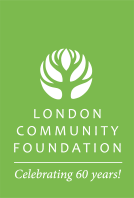With the decline of the manufacturing industry in London we are seeing increasing rates of unemployment and skill mismatch. As a result more adults have to return to school to train for their second career. This proves to be a significant barrier as this can be a daunting process that takes a great deal of courage to begin.
More About the Issue ↓
1 in 5 adults in London is functioning at the lowest level of literacy, often unable to read basic signs and medicine instructions (Child & Youth Network)
A mom of six, Tara found herself living off social assistance and unable to find work after being laid off from her job working in a local factory. Without a high school diploma, Tara struggled to find meaningful work. With a desire to turn her life around and become a positive role model for her kids, Tara discovered Literacy London where she was able to complete several high school diploma credits. Now, Tara aspires to attend Fanshawe College for social work or medical radiation technology. Literacy London is one of the primary organizations that adults turn to when they need to upgrade their education. Offering one-on-one training in reading, writing, numeracy and computer skills, Literacy London has helped countless numbers of adults turn their lives around.
Post-Secondary Education
In 2013, 52.5 percent of the population in London (CMA) aged 15 and older had received post-secondary education. (Statistics Canada, Labour Force Survey)
Proportion of the Population (15 years and over) that have not completed High School
In London (CMA), 16.9% of the population (15 years and over) in 2013 had not completed high school. (Statistics Canada, Labour Force Survey)
Aboriginal High School Completion Rates for Persons Aged 25 to 64
In 2011, 76.3 per cent of the Aboriginal population aged 25 to 64 in London (CMA) had at least one certificate, diploma, or degree, a decrease of 0.9 percentage points from the 2006 rate of 77.2 percent. (Statistics Canada)
- Four out of ten adult Canadians aged 16 to 65 struggle with low literacy. (Statistics Canada, 2005)
- Less than 10 per cent of Canadians who could benefit from literacy programs actually enroll. Research shows that lack of money, childcare and transportation are some of the barriers that prevent people from getting help. (ABC CANADA Literacy Foundation, 2001)
- At least 1 in 3 children in London ages 8 to 14 is not meeting the literacy and numeracy standards established by the province. (Child & Youth Network)
- 19%-23% of youth in London are failing to graduate from high school (within 5 years). (Child & Youth Network)

